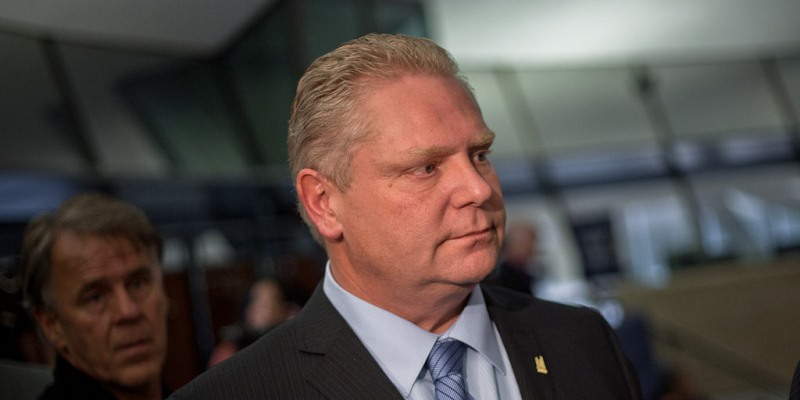Ford right to highlight economic damage of carbon taxes

Last week, Ontario Premier Doug Ford said a carbon tax “will be a total economic disaster” and the “risk of a carbon-tax recession is very, very real.” Predictably, media outlets across the country blasted Ford. “Doug Ford out to lunch with 'carbon tax recession' claim, say economists” said Macleans. “No, Canada isn't threatened by a 'carbon-tax recession” said the Globe and Mail. And Global News went so far as to say, “Doug Ford is making it up as he goes—especially the facts”.
The trouble is, media outlets relied on economists that have a long history of supporting and advocating carbon taxes. The overwhelmingly consensus of such economists is that there’s no compelling evidence to substantiate Premier Ford’s claims and that the likely economic impacts of carbon-pricing will be modest.
Consider, however, an analysis by the federal government’s Parliamentary Budget Officer (PBO). The PBO forecasts economic growth to slow from 1.9 per cent this year to 1.5 per cent from 2020 to 2022, which “reflects in part the impact of the gradual increase in the carbon pricing levy.” When the $50 per tonne federal carbon tax is fully implemented, the PBO estimates it will reduce the annual level of economic activity (GDP) by 0.45 per cent.
It’s easy to disregard a 0.45 per cent reduction. But consider that over a five-year period this works out to $52 billion in lost economic activity. For an average Canadian family of four, that means a loss of nearly $5,500.
It’s also important to consider that the PBO estimate likely underestimates the economic impact of the carbon tax because it “assume(s) that revenues generated by the levy will be returned to households as lump-sum payments.” This is a fine assumption for an academic exercise. But when you deal with the real world, that assumption has no merit since there’s never been a stable “revenue neutral” carbon tax.
British Columbia is a great example. In 2008, when B.C.’s carbon tax was introduced, the B.C. government promised it would be permanently revenue neutral. Unfortunately, that promise did not survive real-world politics. Within five years, B.C. had a new premier and had abandoned revenue neutrality so it could use the revenues to finance new spending. All of this to say that the economic damage from the carbon tax will likely be greater than PBO estimates.
Despite Premier Ford’s clumsy language, in reality the introduction of the carbon tax could be the last straw that pushes Canada into recession. That’s particularly true given all the other economically damaging policies implemented by Ottawa over the past three years including significant deficits with no apparent interest in balancing the budget, tax increases, and more complex and uncertain regulations (particularly for the energy industry), which makes it more difficult to do business in Canada.
It’s no wonder economic forecasters are increasingly pessimistic about the Canadian economy and are beginning to use the “R” word.
Canadians would do well to listen to Premier Ford’s warning. For carbon-pricing to be economically benign, it must replace regulations—not layered on top of them. And the revenue must be used to lower other more distortionary taxes such as personal and business income taxes. Unfortunately, that fantasy world does not exist. The economic impact of the carbon tax will be real, and as always, regular Canadians will pay the price.
Authors:
Subscribe to the Fraser Institute
Get the latest news from the Fraser Institute on the latest research studies, news and events.


